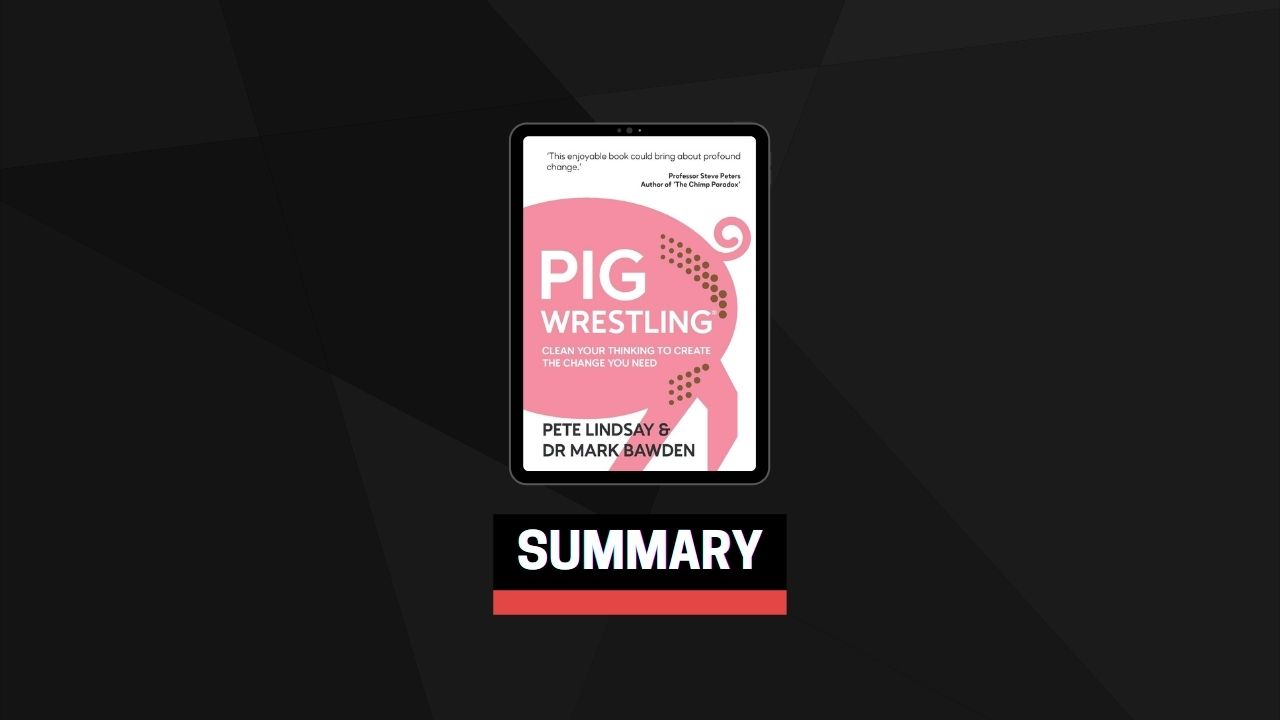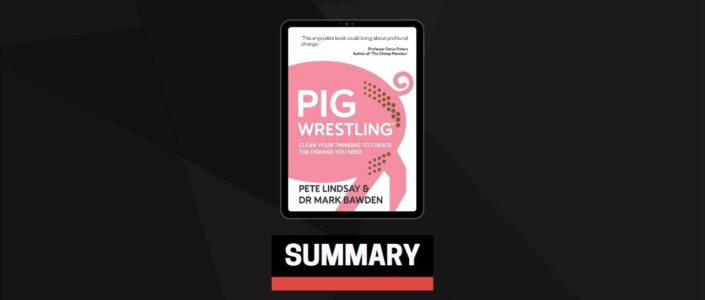Viewing
Problems (not people) are pigs. There’s a right way and a wrong way to deal with them.
Don’t get into pig wrestling. If you find yourself wrestling a pig, you know you’re tackling the wrong problem.
When you’re looking at a pig, run these three checks:
Check 1: How specifically is it a problem for me?
Check 2: Have I actually seen the whites of its eyes and got the whole picture?
Check 3: Should I prioritise this pig right now, and what would truly happen if I did nothing?
Cleaning
The descriptions and narratives we apply to our problems are often linked to our failure to make progress.
When you’re pig wrestling, the labels, stories, and assumptions you apply to the situation are the mud that the pig is stuck in!
You have to take control of the narrative you apply to life, or it will control you.
Take the time to accurately describe a problem in behavioural and factual terms. Never accept the labels and assumptions that come with a situation.
Solutioneering
Our misguided attempts to solve a problem can feed and exacerbate the problem itself.
The themes that connect our failed attempts highlight the assumptions that are holding us back.
Stop thinking how you are going to solve this problem, and start thinking how you’ll know it’s solved.
Imagine that you could look into this crystal ball to a time after a miracle had happened. What would you see once this problem was solved?
Filter out the nice-to-haves, and focus on the need-to-haves.
Mapping
Ask yourself where and when a problem occurs, as well as where and when it does not.
Get curious about the times when the problem can be relied upon to raise itself, and explore the context of those occasions.
Do the same for the times when the problem does not occur and try to spot the difference between the occurrences and nonoccurrences.
Switching
Try to see problems as the result of overdone strengths, instead of faults. Think less about fixing deficits and more about redirecting energies.
Help people to apply the skills that reflect their core talents and passions, and you’ll find it much easier to create the change you need.
Pigs aren’t pets. Don’t take your problems home with you, and don’t grow accustomed to having them by your side.
Beware imaginary pigs. And make sure the problem isn’t you!
Problem cleaning untangles our thinking to unlock new and successful strategies.
Call to Action
Spot the pigs that you and others have been wrestling with, begin discussing the principles with colleagues, explore what you can immediately apply in your world.
The next time you’re in a meeting and someone declares that we have a ‘communication’, ‘cultural’ or ‘team dynamics’ problem, consider using the crystal ball and ask them, “How would we know that this problem was solved?”
Should you find yourself claiming that you have tried ‘everything’ to solve a problem, be prepared to explore what’s in the feeding trough and ask, “Exactly what have we tried?”, “What do these solutions have in common?” and “What made the problem better or worse?” Maybe even check if the previous solutions were simply putting lipstick on the pig!
Should you hear someone state that a problem has ‘always’ been around, encourage them to search for the golden nuggets, asking, “When and where is this problem not present?”
Or if you find that someone is overly concerned about a situation that they have no responsibility for, and little control over, be sure to remind them, “That isn’t your pig to wrestle.”


